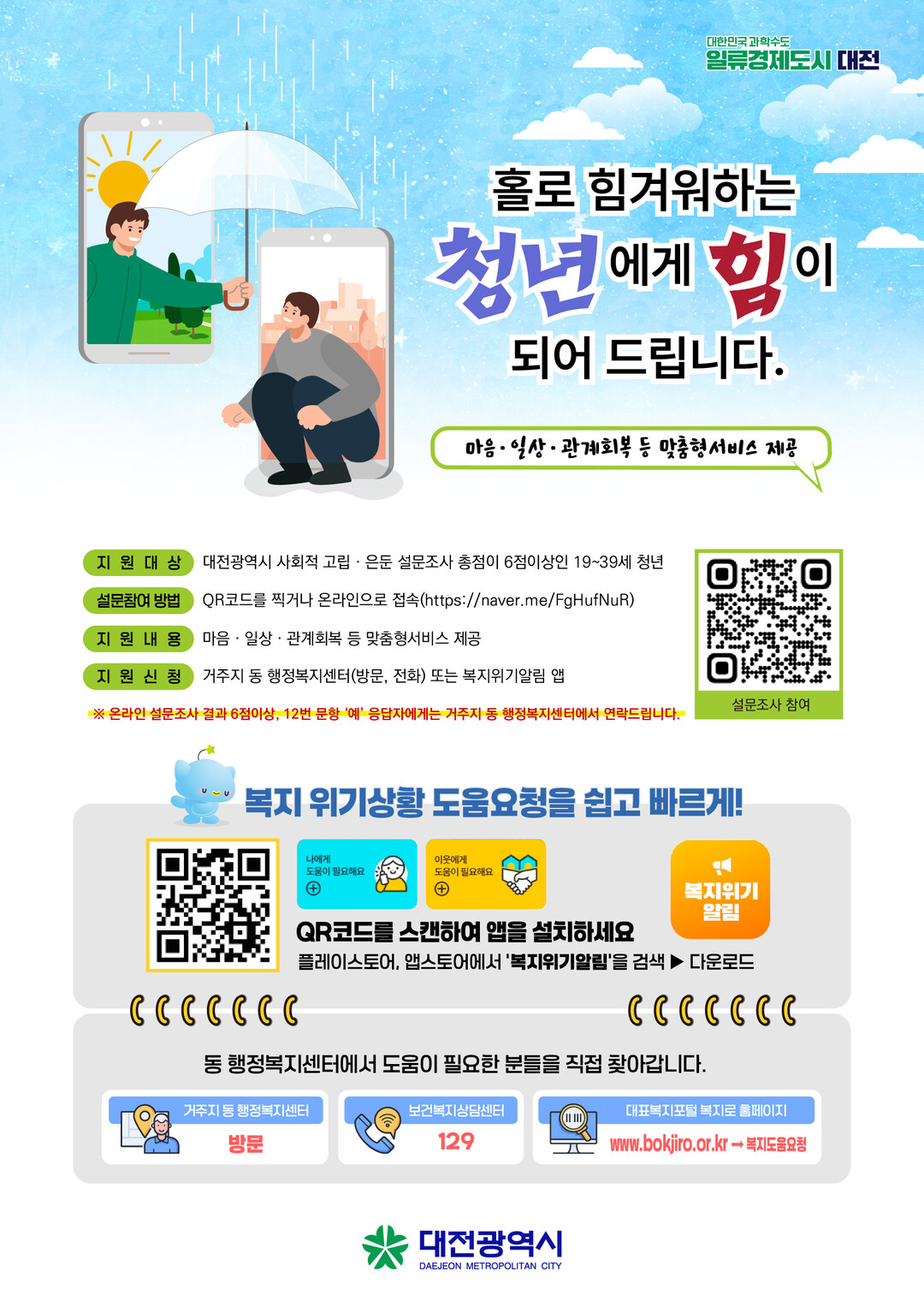
DAEJEON, SOUTH KOREA - In a proactive move to tackle the growing concern of youth social isolation and its tragic extreme, solitary deaths, Daejeon Metropolitan City has extended its critical outreach program aimed at identifying high-risk young adults. Originally slated to conclude in March, the city-wide initiative will now continue until May, underscoring Daejeon's commitment to early intervention and comprehensive support for its vulnerable youth population.
Daejeon stands out as the only metropolitan area in South Korea where all five of its autonomous districts have been simultaneously selected for the Ministry of Health and Welfare's "Support Project for High-Risk Youth Facing Social Isolation." This unprecedented unified approach highlights the city's dedication to addressing this complex social challenge. However, despite this initial success in securing national funding, the rate at which at-risk youth were being identified through traditional methods fell short of the city's objectives.
Recognizing the urgency of the situation, particularly in light of rising concerns about mental health and social disconnection among young adults nationwide, Daejeon's leadership opted to extend the identification period. This extension is intended to yield more substantial results in connecting isolated youth, aged 19 to 39, with crucial support services.
The current initiative is a direct outcome of Daejeon's "Implementation Plan for Preventing Social Isolation Deaths," a comprehensive strategy formulated and announced in February 2025. The core aim is to proactively identify young individuals grappling with social isolation and psychological distress and provide them with targeted assistance focused on emotional recovery, rebuilding social connections, and facilitating their return to a stable daily life.
The initial phase of the outreach, conducted in February and March, employed conventional methods such as door-to-door surveys facilitated by local community leaders and phone or text message surveys targeting individuals who had explicitly consented to share their personal contact information. However, these approaches encountered significant obstacles. Door-to-door visits were often unproductive due to the reluctance of single-person households to open their doors to strangers, a common challenge in increasingly individualistic urban environments. Similarly, phone and text message surveys suffered from low response rates, attributed to widespread "call phobia" – an anxiety around phone conversations – and pervasive fears of voice phishing scams, a significant societal issue in South Korea.
In a bid to overcome these limitations and enhance engagement, Daejeon City has strategically embraced digital technology, a medium more familiar and accessible to the younger demographic. A mobile self-assessment survey has been introduced, accessible via QR codes. This innovative approach allows young individuals to participate discreetly and conveniently using their smartphones. By scanning the QR code, users are directed to an online survey comprising 17 questions. Eleven of these questions are designed to assess their levels of social isolation and withdrawal, while the remaining questions address the necessary protocols for personal data collection and usage consent.
The results of the self-assessment are carefully categorized based on the total score. Individuals scoring six points or higher are classified as being in a "High-Risk Group," while those scoring eight points or higher and including a positive response to the 11th question (specifically related to withdrawal tendencies) are identified as "Withdrawn Type." Crucially, those identified as high-risk will be promptly referred to their respective autonomous districts for comprehensive case management and the swift provision of tailored support services.
To maximize the reach and effectiveness of this digital outreach strategy, Daejeon City is implementing a multi-pronged dissemination plan. Eye-catching promotional posters and leaflets embedded with the QR codes will be strategically placed in key locations frequented by young people, including youth centers, social welfare facilities, high-density studio apartment areas, and university campuses. Complementing this offline effort, a robust online promotional campaign will be launched across various social media platforms and online youth communities, leveraging the digital spaces where young adults actively engage.
Kim Jong-min, the Director of Welfare for Daejeon City, emphasized the critical importance of this initiative, stating, "Youth social isolation deaths represent a significant social challenge that our society must proactively confront. We are committed to encouraging greater participation in this identification survey, ensuring that more young individuals who are experiencing isolation and disconnection can reach out for help. By facilitating early intervention and providing customized support, we aim to continuously expand our efforts in this crucial area."
Daejeon's proactive and adaptive approach, particularly its embrace of digital tools to connect with a hard-to-reach demographic, serves as a potentially valuable model for other municipalities grappling with the growing issue of youth social isolation in South Korea and beyond. The extended outreach period and the user-friendly QR code survey offer a promising pathway to identifying and supporting vulnerable young adults before they reach a point of crisis.
[Copyright (c) Global Economic Times. All Rights Reserved.]






























